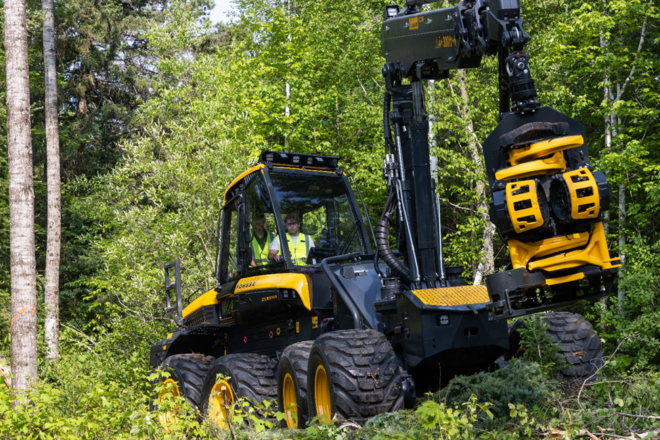Inflation’s Impact on F&W Forestry Services, Inc
Career Record Inflation: How does it impact land managers and owners, and what can we learn?
Most of us have not experienced inflation this high in our entire careers, and for the few who have, it most likely occurred at a very early stage before being responsible for managing a business through it. From higher employee salaries and benefits, operating expenses, and increased land management costs, inflation is having an impact on land managers and landowners alike.
As a forestry consulting firm, our largest operating expenses are employees, trucks, and fuel. F&W Forestry Services provides a full suite of services to timberland owners from Texas to Maine and the Pacific Northwest, managing more than two million acres of timberland in the U.S. alone. This requires a lot of employees, trucks, and miles on the road. Employees are our most valuable assets. They are the keys to our success. So, when the cost-of-living increases, employee salaries are almost always raised by the same amount as the Consumer Price Index. The cost of the benefits we offer our employees have also risen with inflation, and we continue to add employees as our business grows. That is a lot of added cost that impacts our bottom line. But, as in any business, it is important to maintain a positive work environment that allows employees to meet their career and financial goals. This is built into our culture and drives the decisions we make.
Most of our employees need a truck to perform their jobs. If you have been to a truck dealer in the last two years, you know truck prices have risen ~$10,000/vehicle. Combined, our foresters drive an average of more than two million miles per year. Moreover, fuel prices have increased by around $2/gallon over the last two years. No matter how efficient (or inefficient) your truck, that is a substantial increase in truck and fuel expenses required to get the jobs done!
Land management costs have also been impacted by high inflation. Input costs such as fertilizer, chemicals, diesel, seedlings, and contract labor are all higher than they were two years ago.
These higher prices could impact near-term investments in silviculture, which will have longer-term supply implications. Cut and haul rates for harvesting are higher, so landowners need to get higher delivered prices at the mill to help them maintain a return on their long-term investments and to be able to afford to keep the land in timber production. Additional pressure on an already challenged logging and truck force could have near-term implications as undercapitalized operators may be forced to shut down. These increases in cost to the landowners make them even more cost-conscious. In many parts of the South, where reforestation costs have taken a real jump, stumpage prices have not kept up with increasing costs, rendering some management activities uneconomical. Every sector has been impacted. It seems to be a never-ending cycle!
High inflation or not, I learned a long time ago that there are positives to every negative. To do a fair assessment, we must recognize the positive aspects of high inflation on our business. Timberland ownership is a hedge against inflation and is uncorrelated to the stock market. So, higher inflation and market volatility have driven more interest in timberland ownership. This affects supply and demand in two ways. There is a fixed supply of land. More buyers and higher demand drive land prices up, which is good for sellers and real estate businesses. Also, more people buying timberland increases the need for land managers. These are both positives for our business.
There are also a couple of secondary advantages to our business. If inflation causes landowners to need more cash, they may cut more timber, meaning more work for land managers. And the same thing happens if stumpage prices go up with inflation, which often occurs.
At F&W, we strive to provide the highest quality service to our clients. Increasing costs can put pressure on us to cut standards, but we believe that maintaining high standards through tough times may provide an advantage over those who lower their quality to cut costs.
There have been some lessons learned and truths reinforced by these tumultuous times. We must remain focused on improvements to our business in good times and bad. Whether it is by working more efficiently, planning trips to minimize travel time and fuel expenses, or developing new technology that saves time and money, continuous improvements allow businesses to survive and grow through rough economic times. Voting, as well as getting involved and speaking to political leaders about your interests, is important. You can make a difference.
The founders of the U.S. were very intelligent. Free markets and innovation continue to work over the long-term despite intermittent fiscal and monetary policy influence. We need to get involved and make sure these values remain the foundation of this great country!
About F&W:
Established in 1962, F&W Forestry Services, Inc., of Albany, Ga., is one of the nation’s oldest and largest forest consulting and management firms. The company handles timber sales and provides comprehensive forest management and consulting services. The company also provides back-office support services and information management for mid-to-large timberland owners and offers a full array of real estate services through its subsidiary, Fountains Land. The company maintains a network of offices in the heavily forested regions of the U.S., including the Southern Pine Belt, the Central and Appalachian regions, the Northeast and Northern California, and the Pacific Northwest. F&W also manages private forestland internationally through offices located in Uruguay, Brazil, France, and the United Kingdom.


